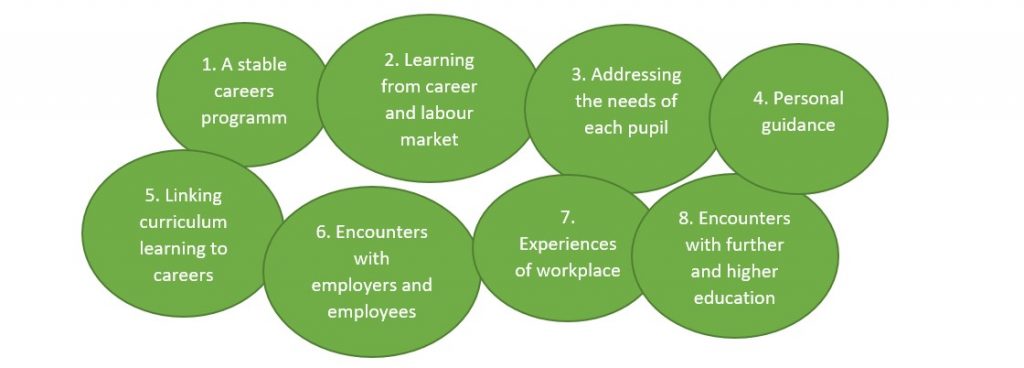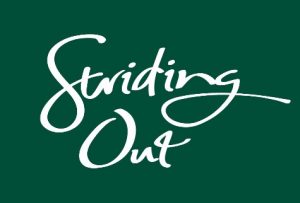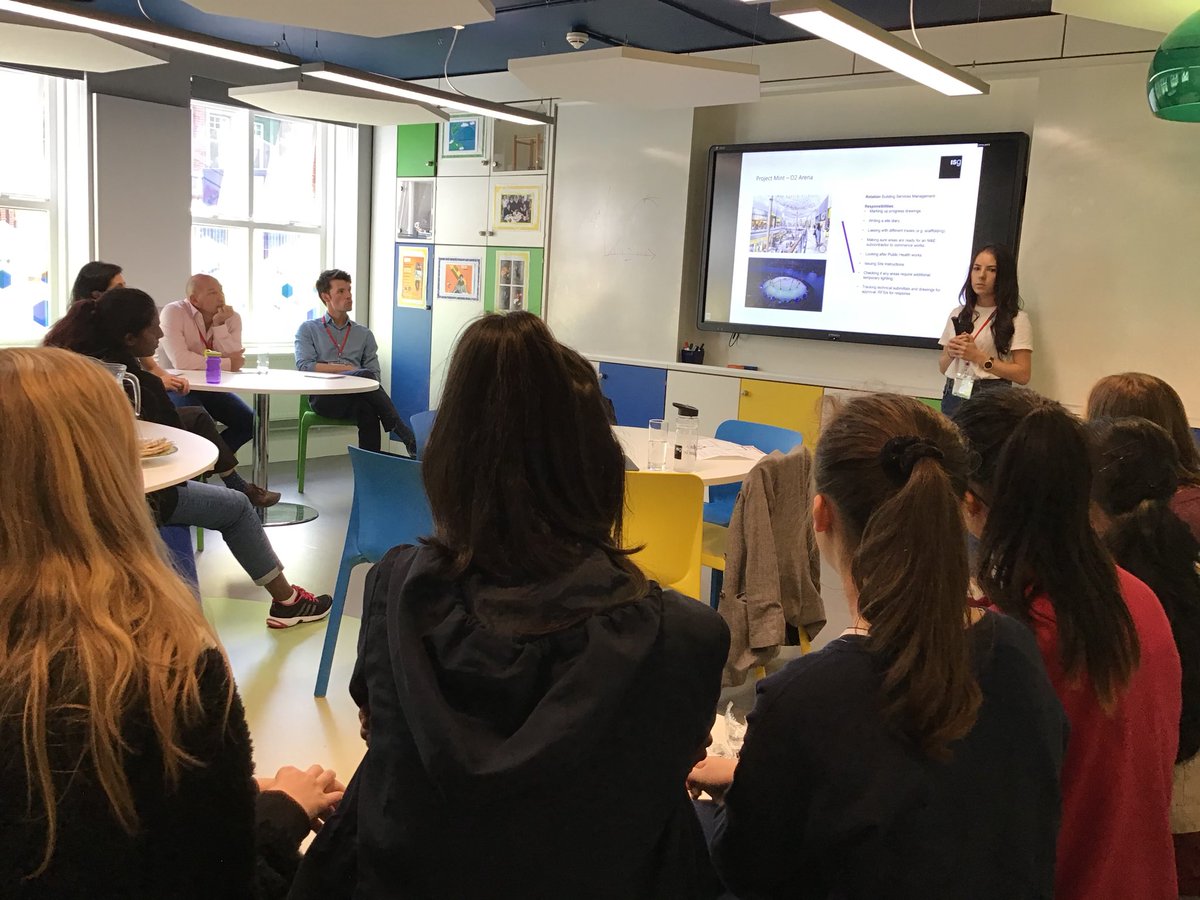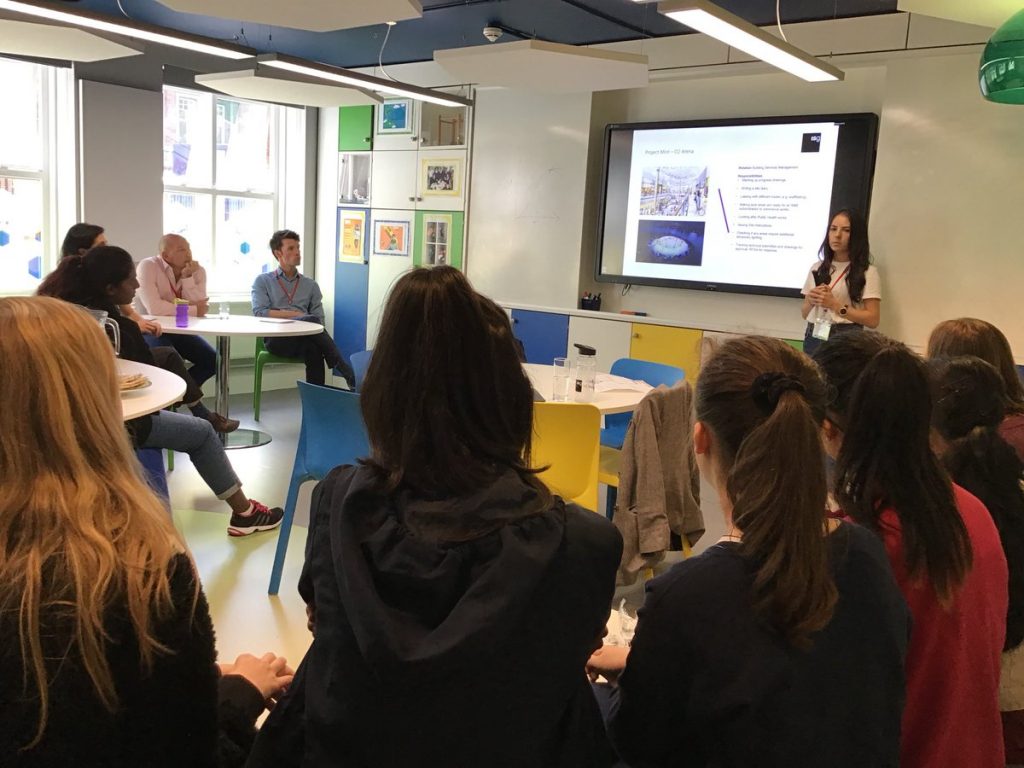Mrs Nicola Cooper, Director of Higher Education and Careers at WHS, explores the impact of the Gatsby benchmarks on careers education in schools.
If like me, you finished school before the turn of the millennium, I suspect that your experience of careers education and guidance as a teenager may well have been rather uninspiring. My only recollection is of a hurried conversation with my form tutor in which I enthusiastically expressed an interest in becoming an air hostess, only to have it swiftly dismissed as a totally unsuitable career for an academic student. Even at university the options put forward by the advisers seemed limited to accountancy, retail, teaching or law.
Thankfully those dark days of careers education, information and advice as – at best – a desirable added extra, are long gone. Nowadays all schools are well aware that helping students to think about and prepare for their working life is a central part of what we do.
The importance of careers education in schools was given a significant boost in 2013 when the Gatsby Foundation commissioned Sir John Holman – Emeritus Professor of Chemistry at the University of York, senior education adviser and former headteacher, to produce a report setting out what career guidance in England would look like if it achieved a ‘good’ rating by international standards.[1]
The eight ‘benchmarks’ proposed by Holman in his report represent a clearly defined framework that significantly raises the bar in the area of careers work in schools.[2] Subsequent to the publication of the report, the Gatsby benchmarks were explicitly referenced throughout the Department of Education’s Careers Strategy[3] and now form a key part of new Statuary Guidance for careers.[4]

[1] https://www.gatsby.org.uk/education/focus-areas/good-career-guidance
[2] https://www.gatsby.org.uk/education/focus-areas/good-career-guidance
[3] https://www.gov.uk/government/publications/careers-strategy-making-the-most-of-everyones-skills-and-talents
[4] https://www.gov.uk/government/publications/careers-guidance-provision-for-young-people-in-schools
Implementing Gatsby
In the last couple of years addressing the so-called ‘Gatsby benchmarks’ has become a strategic objective for all schools (they will form part of the Ofsted framework from 2020). For those of us tasked with leading CEIAG (careers education, information and guidance), their robust nature presents an exciting, if somewhat daunting challenge. Our response here at WHS has been to view the framework as an opportunity to take a completely fresh look at our provision. An initial audit of existing activities against the eight aspects identified by Holman helped identify a number of key areas in which we could develop and extend our programme.
Personalised guidance
Gatsby identifies personal guidance and addressing the needs of each pupil as a key feature of excellent careers advice and guidance. Student review and reflection, already a key feature of the pastoral system at WHS, will in the future also include discussions around more careers related values, interests and aptitudes. Along with formal 1 to 1 guidance interviews for every student at both KS4 and KS5 and access to labour market information through online platforms such as Fast Tomato and Unifrog, we can now be confident that all our girls have access accurate and up to date advice appropriate to their individual requirements.
‘Real life’ experiences
One of the biggest challenges all schools face in addressing Gatsby is increasing the level of engagement students have with employers and the world of work. There is a strong empirical base for the benefits of ‘real life’ experiences, on self-development, employability, earnings potential[1] but a combination of health and safety and safeguarding concerns along with the timetable demands placed on teachers by new more rigorous GCSE and A level specifications can mean organising opportunities to meet with employers and experience the world of work can be difficult.
We have had to think creatively and look for innovative ways of bringing the world of work to our students. Running off-timetable enterprise and employability days for Year 9 and 10, inviting speakers (often parents and alumnae) to talk to groups of students informally over a series of lunchtime ‘Getting into…’ talks and sending Year 8 girls off to spend a day at work with a parent or family member are just some of the ways we have sought to increased understanding of working life.
Developing partnerships
One of the more unexpected consequences of the increased focus on CEIAG has been the added impetus for collaboration between schools. This year, working with a colleague at Raynes Park High School, we have established the Merton and Kingston Schools’ Careers Advisers Hub. Sharing expertise, working together to liaise with local chambers of commerce and opening up events like our recent higher education evening to partner schools has not only been an extremely satisfying and enjoyable but also mutually beneficial experience, to both staff and students.
The Striding Out Programme
 The biggest impact of Gatsby has been to act as a framework on which we have built our brand new Striding Out programme, which embraces the concept of a truly holistic approach to career and higher education preparation.
The biggest impact of Gatsby has been to act as a framework on which we have built our brand new Striding Out programme, which embraces the concept of a truly holistic approach to career and higher education preparation.
The programme consists of three strands; Explore, Equip and Experience – E3 with the key aim of providing all students, from Year 7 through to 13, with opportunities to explore the vast range of higher education and career options available, equip themselves with the skills required for a successful career in the 21st century and gain valuable experience of the world of work.
Response to the changes from students, parents and staff has been overwhelmingly positive so far. Moving forward, having established a coherent and cohesive structure, we are now in a strong position to grow, adapt and develop the programme. This will include working more closely with Heads of Department to explore ways of embedding CEIAG into the curriculum.
A Golden Age?
So to address the question proposed at the start of this article: are we entering a ‘brave new world’ of careers education in schools?
I am convinced that Gatsby has been a force for good; it quite rightly puts CEIAG at the heart of what we do in schools. The core principles of access to up to date information, personalised advice and the opportunity to meet with employers and experience the world of work certainly represent the Gold Standard. However, there is no doubt that addressing the benchmarks is an ongoing challenge, it requires time, resourcing and the cooperation of colleagues across the school, particularly senior management. I have been very fortunate to have had unwavering support for all of the new initiatives we have introduced but I know that for other colleagues, particularly those working in the state sector, money and time is in short supply. So a golden age? We might not be there quite yet but there is an army of dedicated and inspiring careers leaders working in school who now have a robust framework to work towards. As such, from where I am standing, the future certainly looks bright.
[1] http://www.educationandemployers.org/research/the-employer-engagement-cycle-in-secondary-education-analysing-the-testimonies-of-young-british-adults/ http://www.educationandemployers.org/research/work-experience-impact-and-delivery-insights-from-the-evidence/




